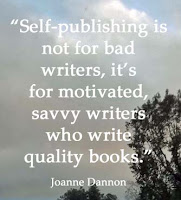“What we need are
people with chests,” said C.S. Lewis. In other words, we need people with fortitude,
pluck, mettle, guts, gumption, courage.
And the Bible tells
us—as do our parents and teachers and coaches and pastors and heroes—that we must
be courageous.
“We need people with guts,” writes Chuck Swindoll, “who will say, ‘I will stand for this, and if I must die for it, then
I die,’” (referring to “If I perish, I perish” in Esther 4:16).
And yet, “No one is
born courageous,” Swindoll says. Have
you ever thought about that?
So how do we learn
to be courageous? One way is to watch someone who has chosen to be brave.
And we parents, grandparents,
and great-grandparents can teach younger generations to be courageous by
modeling how to be brave. By telling
them stories—our own or those of others—about choosing courage.
You know where I’m
going with this: What stories about courage can you include in your memoir?
- Who modeled for you how to look fear in the face? Stare it down?
- Who showed you what it’s like to defy fear?
- When did you stand up against what scared you?
- How did you overcome cowardice?
The quotes below
will inspire you to write about courage—experiences you and others have had, stories
to teach and strengthen your readers when they need to be brave.
“Do it trembling if
you must, but do it.” Emmet Fox
“If there is ever a
tomorrow when we’re not together…there is something you must always remember.
You are braver than you believe, stronger than you seem, and smarter than you
think. But the most important thing is, even if we’re apart… I’ll always be
with you.” A. A. Milne
“Courage is what it
takes to stand up and speak. Courage is also what it takes to sit down and
listen.” Winston Churchill
“Success is not
final, failure is not fatal: It is the courage to continue that counts.”
Winston Churchill.
“Our heart, which is
the center of our being, is the seat of courage…. Courage often starts in small
corners: it is courageous not to participate in gossip, not to talk behind
someone’s back, not to ridicule another. It is courageous to think well of
other people and be grateful to them even when we live different lives than
they do.” Henri Nouwen, Sabbatical Journey: The Diary of His Final Year
“Fear is a genuine thing; without it there is no courage.
The courageous man is the one who overcomes fear.” Oswald Chambers, He Shall Glorify Me
“I wanted you to see what real courage is, instead of
getting the idea that courage is a man with a gun in his hand. It’s when you
know you’re licked before you begin but you begin anyway and you see it through
no matter what. You rarely win, but sometimes you do.” Harper Lee’s character,
Atticus Finch, in To Kill a Mockingbird.
“Courage is being scared to death…and saddling up anyway.”
John Wayne
“…Bravery is not an act—not a moment—it’s a lifestyle. It’s
an attitude. It’s a steady, long pursuit. It’s a posture by which we live.” Danielle
Strickland, A Long Posture of Bravery (as originally published in She Loves Magazine)
“…Be strong and courageous. Do not be terrified; do not be
discouraged, for the Lord your God will be with you wherever you go” (Joshua
1:9).
The Bible has many other
verses urging us not to be afraid, to instead be courageous—and how. Be sure to
use those in your vignettes, too.
So there you have
it:
Write your stories about
courage, fortitude, pluck,
mettle, guts, and gumption.
God can use those stories
to encourage and strengthen others.
And when you get
those stories in writing,
let us know here at SM 101
by leaving a comment below
or on the Facebook Page,
or by sending a private message.











